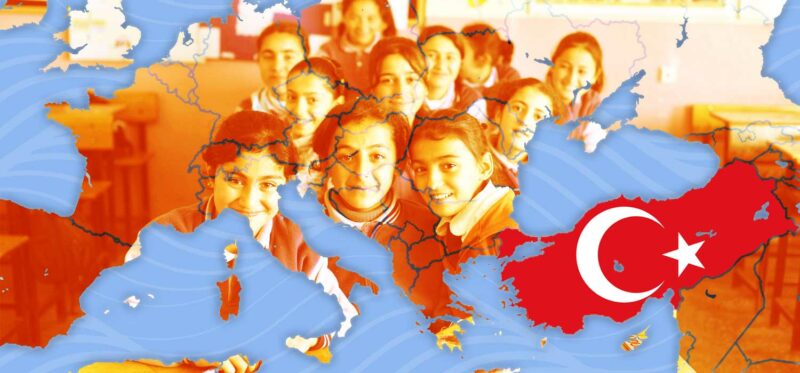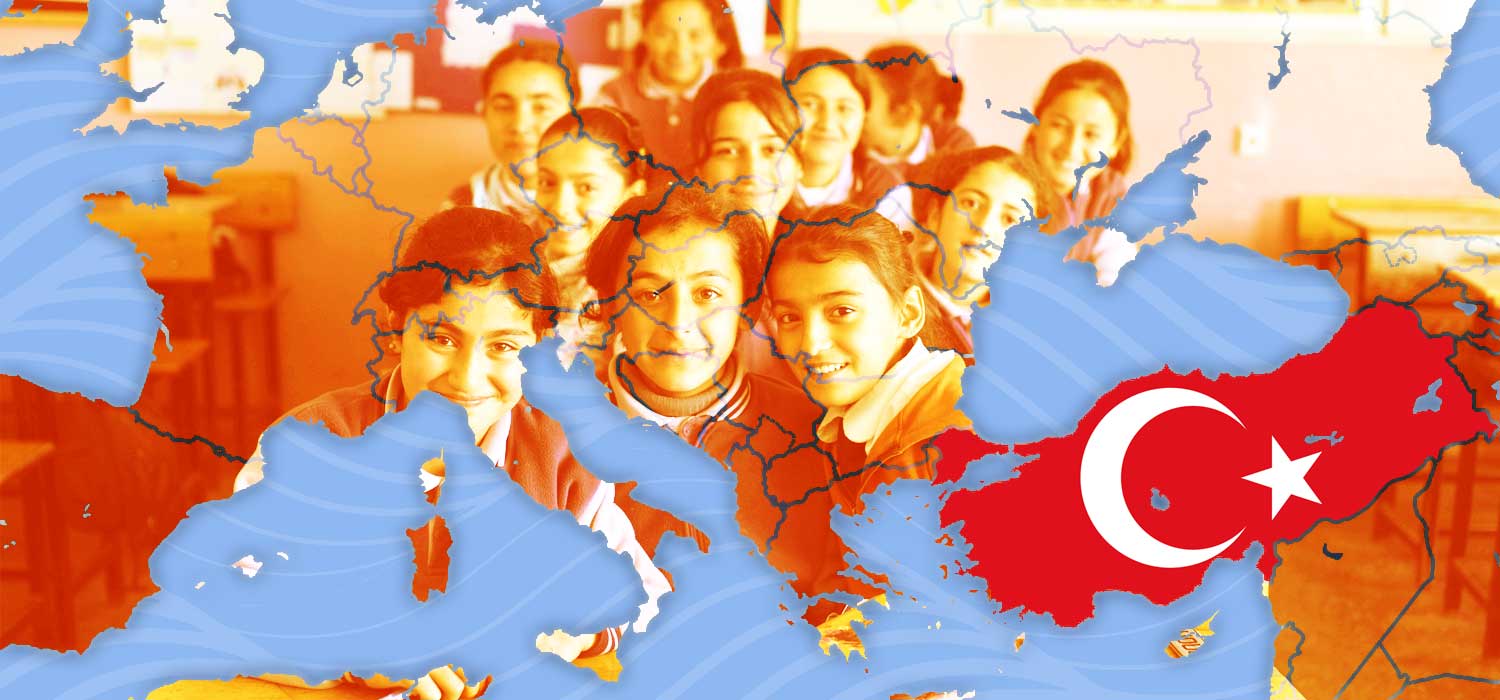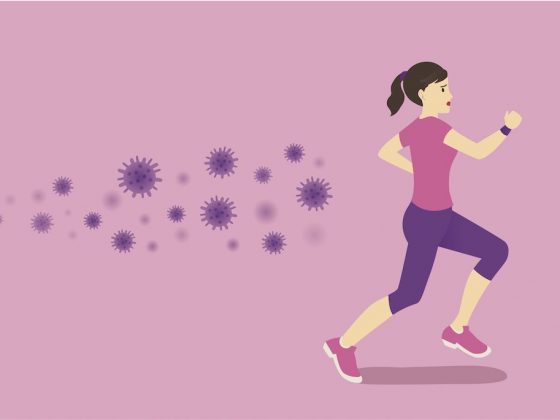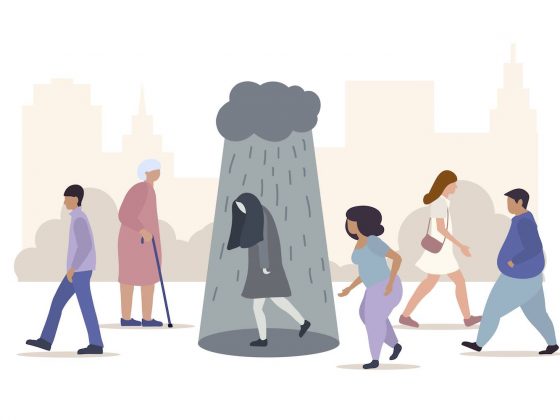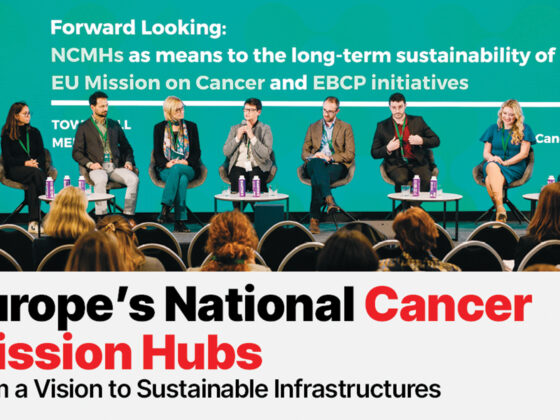This article is from 2022, if you are interested in topics related to the elimination of HPV cancer you can also read:
- Cervical cancer elimination efforts boosted by simpler ways to identify and treat pre-cancerous lesions
- Global elimination: securing a future free from cervical cancer
- Harald zur Hausen: the virologist who opened a pathway to eliminating cervical cancer
Instead, for HPV vaccination and screening policies in the world we have also written:
- HPV vaccination: generating demand by spreading knowledge and information
- Delivering cervical cancer screening across India: the plan… and the practice
- A success story in Romania’s struggle to control cervical cancer
- Hospice caring for women with cervical cancer launches own mobile screening clinic
- From stigma to strategy: Egypt’s journey in combating cervical cancer
Turkey’s minister of health announced on 24th November that the government is planning to start an HPV vaccine rollout. “We will start vaccination with a designated group and gradually expand its scope,” said health minister Fahrettin Koca in a speech at the Parliamentary Planning and Budget Committee.
With a population of more than 85 million people, Turkey is the second largest country (after Russia) in the World Health Organization (WHO) Europe region, so the announcement has been widely welcomed as an important step in driving up HPV vaccination rates towards the 90% of the target population that was set by the WHO as a target for 2030.
While the vaccine was first introduced in Turkey in 2008, it was not included in the state free national vaccination programme and uptake has been limited to people who are aware of the importance of the vaccine, and who can afford it. Cervical screening, by contrast, has been available for free; however, here too uptake has been very limited due to the absence of any organised national screening programme.
According to Turkish gynaecologic oncologist Cem Baykal, the number of young girls or women who have received the HPV vaccine has remained too low compared to other modern countries. “We do not have a regular, state-run, organised smear screening programme, nor do we have a regulation on nationwide HPV screening,” he told Cancerworld. “If we think about it from this point of view, the inclusion of HPV vaccination in the national immunisation programmes will offer us the opportunity to close the gap that we have not been able to make in screening.”
There is concern, however, over potentially damaging restrictions to eligibility, together with a lack of detail about who will be covered and the timeline for the rollout. Most controversial has been the decision to introduce marital status as a criterion for access among those aged above the early adolescent target group – a decision that the health minister said was driven by cultural considerations rather than evidence of benefit. “We have no reservations about the application of the HPV vaccine. However, making decisions that are disconnected from the social realities of our country is of no use to anyone. According to the planning we have made, we are preparing a plan that takes into account age groups and marital status,” said Koca.
Campaigners are calling for both girls and boys to receive the vaccine, to achieve herd immunity, starting with those between the ages of 9 and 14, and then gradually moving on to age groups 15 years and above.
“Including HPV vaccination in the national immunisation programmes will help us close the gap that we couldn’t close in screening”
Gender-neutral vaccination is now in line with WHO recommendations. Traditionally the WHO has recommended that primary prevention of cervical cancer is best achieved by high levels of HPV immunisation among girls aged 9–14, but more recently it stated that “Vaccination of boys, where feasible, also increases protection of girls through herd immunity and protects boys against other HPV-related cancers.”
Around half the countries running vaccination programmes in the WHO Europe region (which includes Turkey) include adolescent boys as well as girls. No details have yet been forthcoming over whether Turkey intends to take the same approach.
On the issue of marital status, the intention seems to be to restrict access to the HPV vaccination among those aged 15 or above to those who can demonstrate they are married – a policy that would seem to deny access to demographic groups who would be most likely to benefit.
Turkish women and NGOs have already filed dozens of lawsuits calling for the HPV vaccine in Turkey to be free.
A stigma has persisted around the HPV vaccine in Turkey, due to the connection between HPV transmission and sexual activity. Baykal says that ideas spread by HPV vaccine opponents, for example that premarital sexual intercourse and cervical cancer are uncommon in Turkey, “deprive our young girls of the advances in medicine.”
In response to the announcement by the Ministry of Health, Baykal said that it was “a victory”, but that linking the vaccination to marital status was “nonsense”.
Cost of living crisis
One of the main challenges facing Turkish nationals who wish to take the HPV vaccine is how to afford it with the soaring consumer prices. Turkey’s annual inflation rate reached just over 85% in October 2022.
The price of the HPV vaccine in Turkey is up to 3000 TL (more than €150) for a single dose of Gardasil 4, while the new Gardasil 9 vaccine is not available in the country, according to Baykal. He says that the vaccine costs more than 50% of the minimum wage of Turkish nationals. This has motivated Turkish NGOs such as the Children and Women First Association to advocate for HPV vaccination, demanding the authorities provide it for free to Turkish nationals.
The Children and Women First Association has filed 30 lawsuits in Turkish courts against Turkey’s state health insurance body, the Social Security Institution (SGK), to help Turkish women to get reimbursement for the vaccination. The legal cases rely on the argument that the vaccine is essential and can prevent a deadly disease, and four such cases have already been won.
Hediye Gökçe Baykal, lawyer of the Children and Women First Association, told Cancerworld “Since the HPV vaccine is not yet on the national immunisation programmes, it is possible to apply for legal remedies after paying the vaccination fee yourself. The most troubling issue in terms of the process is that everyone who has been vaccinated and paid the price has to file a separate lawsuit and request a refund. For this reason, our main goal is to include the vaccine in the national vaccination calendar and make it free to everyone.”
“It is possible to apply for legal remedies after paying the vaccination fee yourself”
In the cases they won, she adds, the court awarded a full refund plus legal costs and interest, which cost the SGK ten times the price of the vaccine. The legal wins are encouraging more women to take legal action to secure reimbursement for the cost of getting themselves vaccinated.
“We will continue to fight in the courts until our main demand to include HPV vaccine to the national free immunisation programmes is fulfilled,” said Gökçe Baykal.
Like Baykal, she rejected the Turkish health ministry’s designation of priority vaccine groups based on marital status, although she welcomed the rollout.
“This is a very important step for our #HPVaşısıücretsizolsun (#MakeHPVVaccineFree) struggle,” she told Cancerworld. “As we always say, roll out of the national free vaccination programme should cover girls and boys between the ages of 9 and 12, and should be done immediately. [For people above this age], an arrangement based on marital status is unacceptable.”

